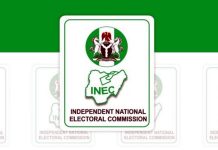As Nigeria celebrates its 64th Independence Day, the nation is at a crossroads. Our journey so far is like saying Omo!! (God help me, Na die I dey.). This year has shown us some significant improvements and a lot more challenges.
As we look ahead to the next six years before we celebrate Nigeria @ 70, we have to assess the current state of affairs, anticipate future problems, and see a potential path forward.
Our Current Challenges:
Nigeria is grappling with a myriad of pressing issues that have far-reaching implications for its development. These include:
- Economic Instability: The nation’s economy, once a beacon of hope in Africa, has been plagued by volatility. High inflation, unemployment, and dependence on oil have made it difficult to sustain growth and improve living standards.
- Security Threats: Boko Haram, Fulani Herdsmen, and other militant groups continue to pose significant security challenges, leading to displacement, loss of lives, failure in our agricultural sector, and a climate of fear.
- Infrastructure Deficiencies: Inadequate infrastructure, particularly in the areas of transportation, power, and healthcare, hampers economic growth and development.
- Corruption: Corruption remains our major problem, stealing away our own resources and hindering the delivery of essential services that we all deserve as its citizens due to the selfishness of our own leaders and the greed to feed their own pockets.
- Political Instability: The country has a history of political instability, with political godfatherism and a loss of faith in our own electoral system. Candidates changing political parties before, during, and after frequent elections. This has undermined governance and hindered progress.
What Does the Future Look Like?
If left unattended to, these challenges could escalate and have even more severe consequences in the coming years. For instance:
- Economic Stagnation: Our country’s reliance on oil and a failure to diversify the economy could lead to economic stagnation and poverty. The neglection of other sectors of the country that can improve the country’s economy is a major cause of concern for our survival.
- Security Crisis: The security situation could deteriorate, resulting in further displacement, humanitarian crises, and a breakdown of law and order. These security issue are playing a major role in the improvement of our agricultural sector, which when left unattended will end the sector completely. we are seeing the results in our food inflation rates.
- Infrastructure Collapse: The existing infrastructure may become overwhelmed, leading to disruptions in essential services and hindering economic activity.
- Corruption and Impunity: If corruption remains unchecked, it could erode public trust in government and undermine democratic institutions.
- Social Unrest: Rising inequality and unemployment among the youth, who are the future leaders of our great country, could set fire to a lot of social unrest and protests. We are already seeing the results in the just concluded #Endbadgovernance protest.
Becoming Better Is A Matter Of Choice
Despite these challenges, Nigeria has the potential to overcome its difficulties and build a brighter future. However, this will require bold and decisive action from both the government and the citizenry.
Government Initiatives:
- Economic Diversification: The government should prioritize diversifying the economy away from oil, promoting agriculture, manufacturing, and technology.
- Improved Security: Increased investment in security forces, improved intelligence gathering, and community-based approaches are essential to combating insecurity.
- Infrastructure Development: The government should invest in critical infrastructure, such as roads, railways, power plants, and healthcare facilities.
- Anti-Corruption Measures: Stronger anti-corruption laws and institutions are needed to combat corruption and improve governance.
- Good Governance: Promoting good governance, transparency, and accountability is essential for building trust and fostering development.
Citizen Engagement:
- Active Participation: Citizens should actively participate in the political process, hold their leaders accountable, and demand good governance.
- Community Development: Communities should work together to address local challenges and promote development.
- Entrepreneurship: Entrepreneurship can create jobs, drive innovation, and contribute to economic growth.
- Civic Education: Promoting civic education can empower citizens to understand their rights and responsibilities.
What Citizens Can Expect and Plan For
In the coming years, Nigerians can expect a mix of challenges and opportunities. While the country faces significant hurdles, it also has the potential for growth and development.
Citizens should be prepared for:
- Economic Hardship: The economy may experience fluctuations, leading to increased costs of living and job insecurity.
- Security Threats: The security situation may remain volatile, requiring citizens to be vigilant and aware of their surroundings.
- Infrastructure Challenges: Disruptions in essential services, such as power and water supply, may occur.
- Political Uncertainty: The political landscape may be subject to change, affecting governance and policy direction.
To navigate these challenges, citizens should:
- Financial Planning: Create a financial plan to manage expenses and prepare for unexpected costs.
- Skill Development: Invest in skills development to improve job prospects and adaptability.
- Community Engagement: Participate in community activities and support local initiatives.
- Civic Engagement: Stay informed about current affairs and exercise your right to vote.
- Resilience: Develop resilience to cope with challenges and setbacks.
As I write this article with a heavy heart, I, as well as all other Nigerians, hope and pray that I am wrong.
In conclusion, Nigeria’s future is not predetermined. It is shaped by the choices made by its leaders and citizens. By addressing the current challenges and seizing the opportunities, Nigeria can build a more prosperous, equitable, and secure nation for all its people.













